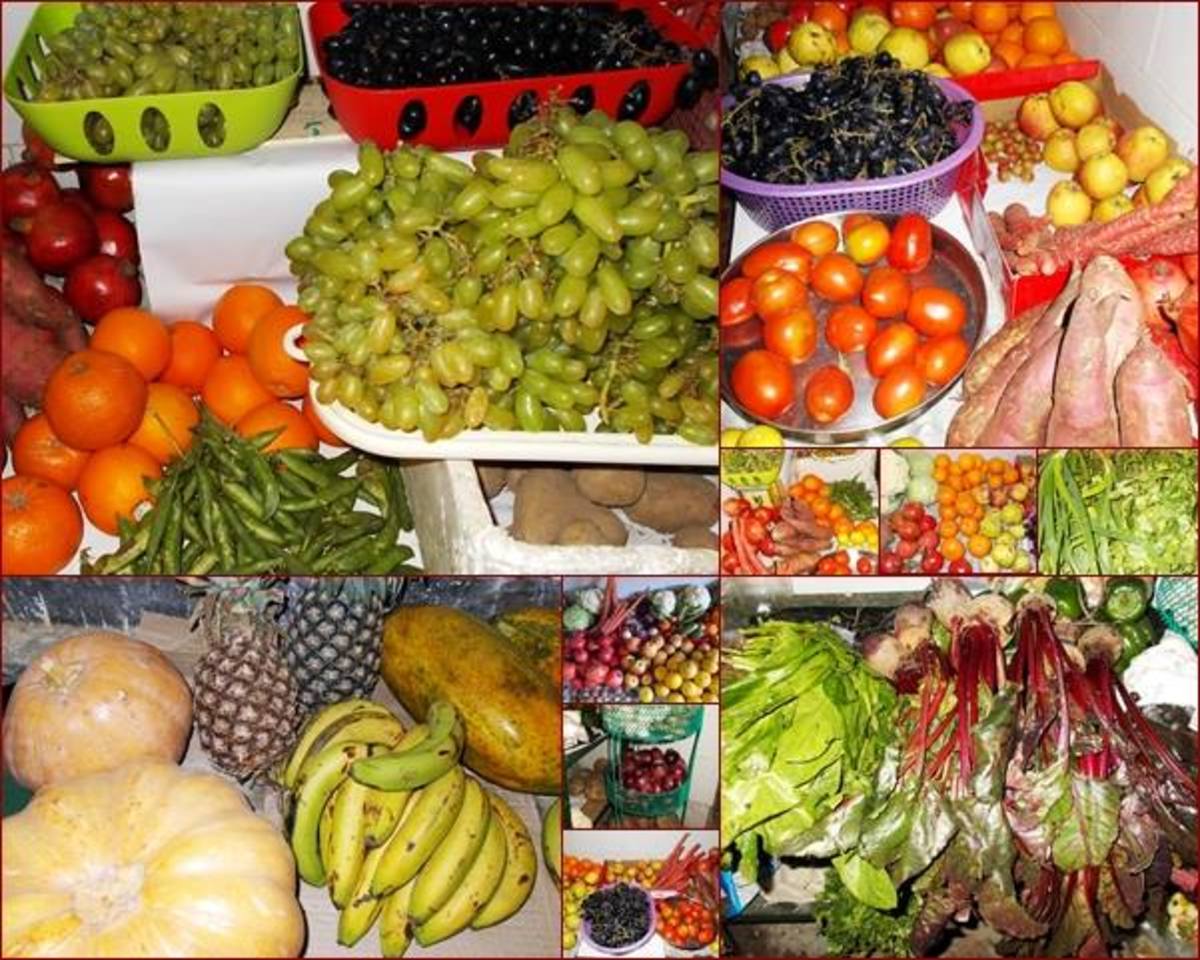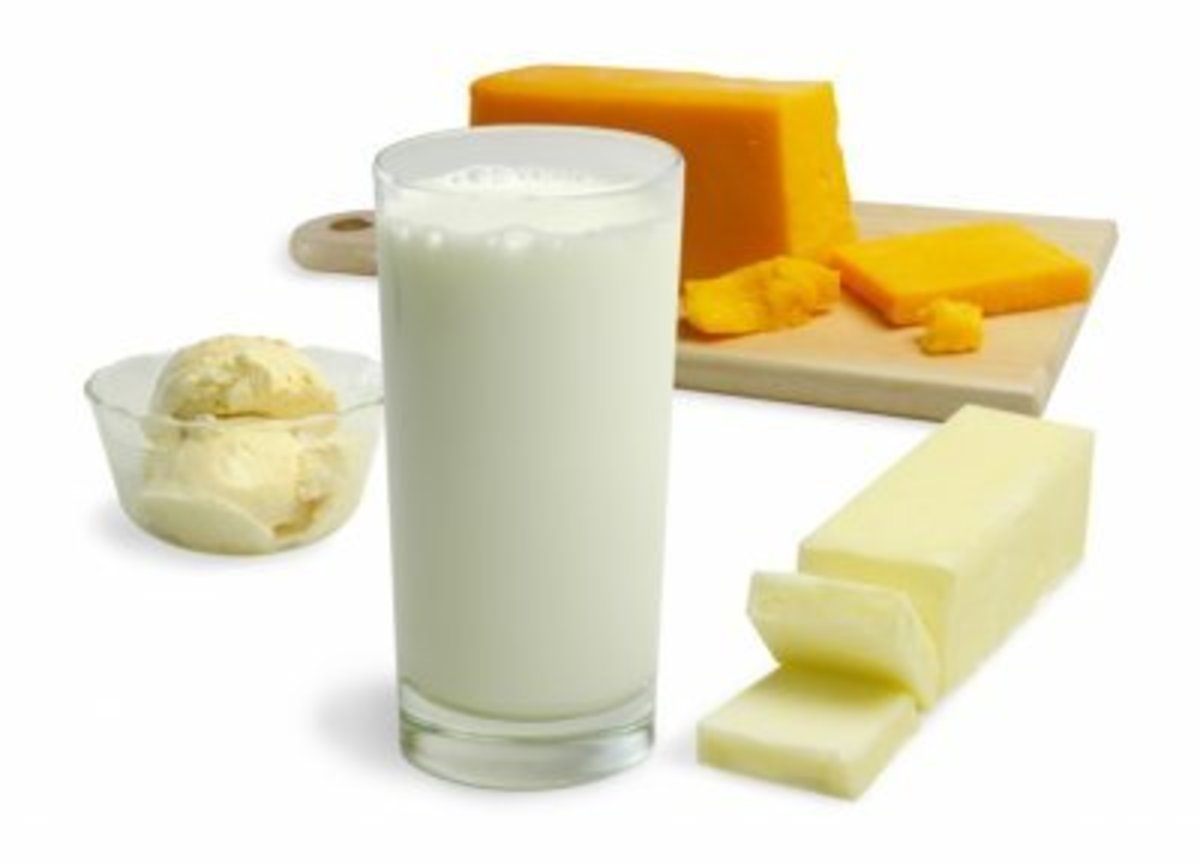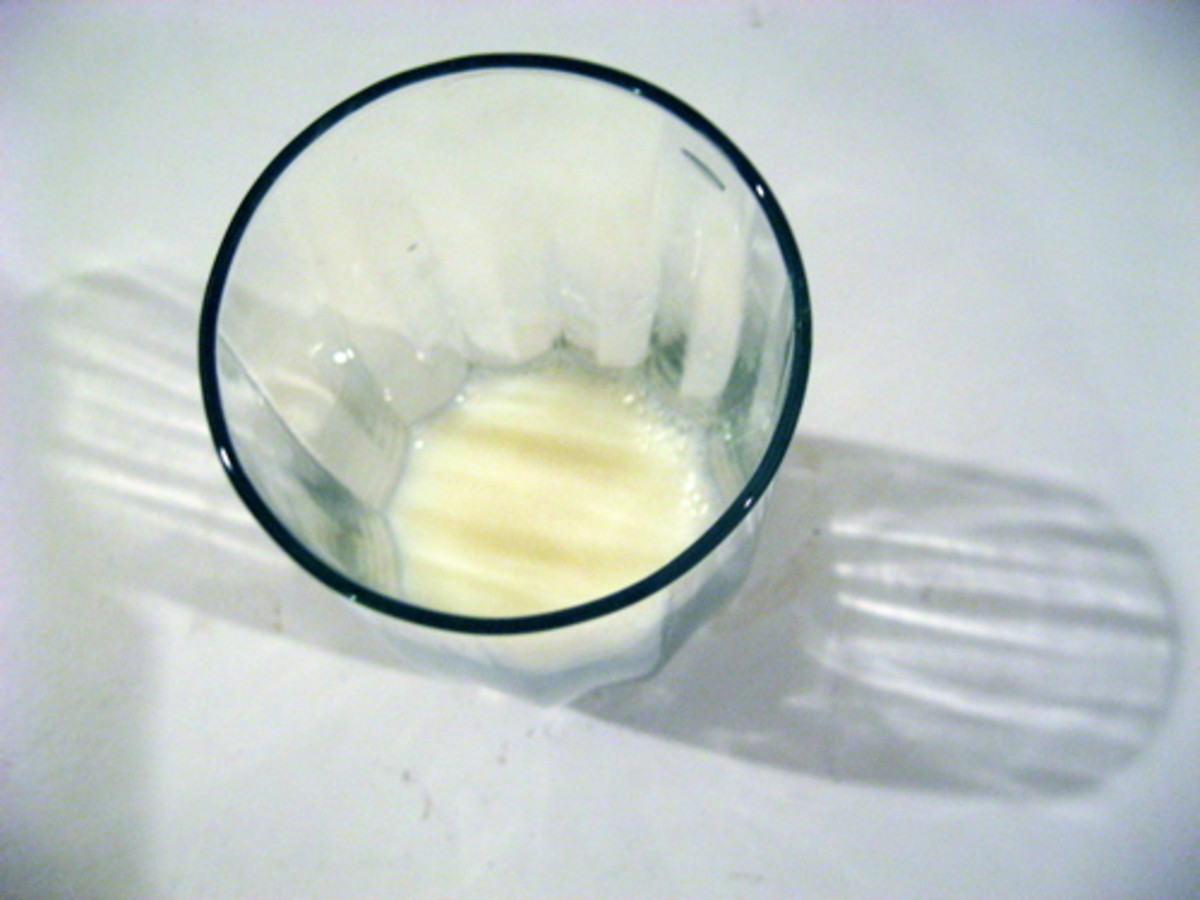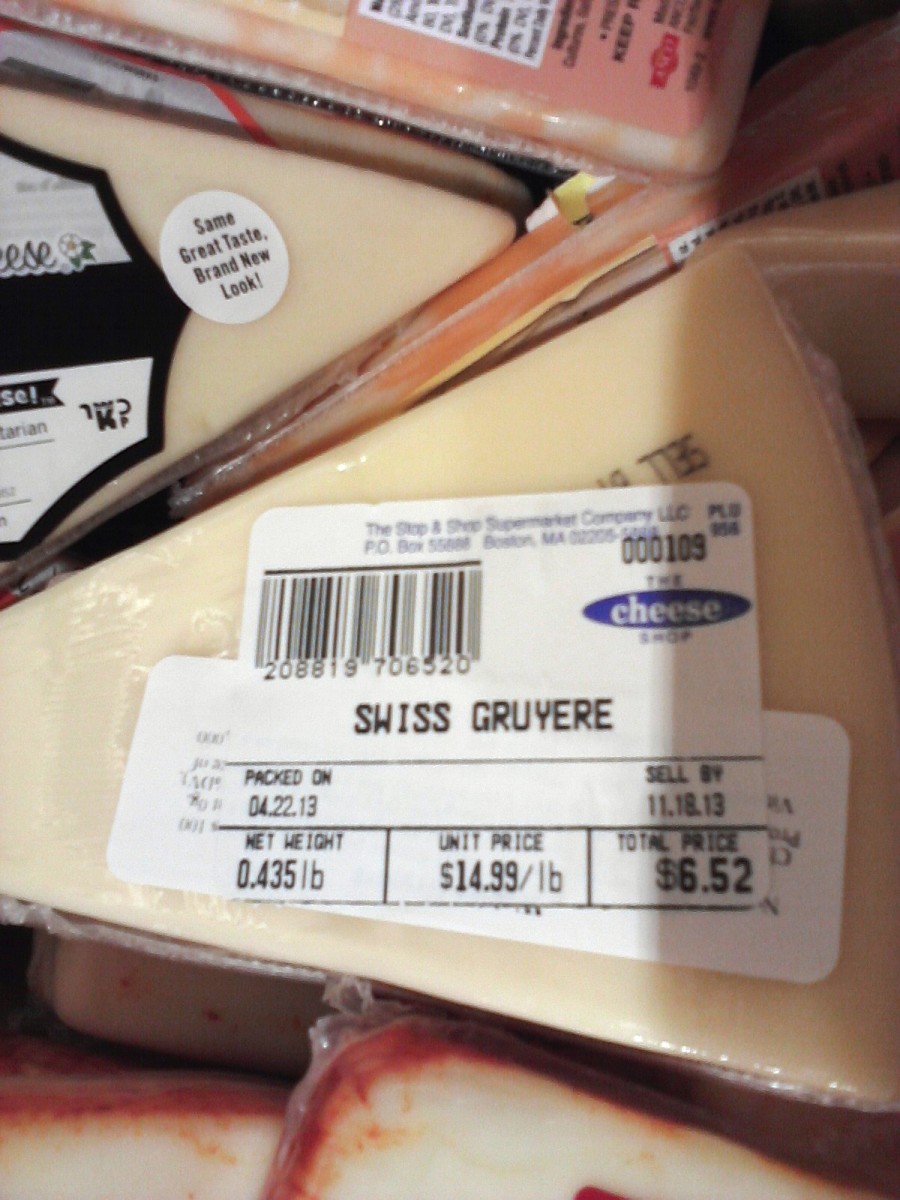The Dairy Dilemma Is Milk Good for Bones but Bad for Digestion
Dairy products, such as cow milk and cheese, contain calcium and vitamin C. Both of these are good for bones: growing bones, aging bones and all bones in between.
A cup of whole cow's milk contains 300 milligrams of calcium and yogurt has 400 milligrams. On average, humans require approximately 1300 milligrams of calcium a day, with infants and toddlers requiring only 500 milligrams a day.
Why do the young need so much less? Because they're still really small.
Leafy green vegetables and dry beans also have high concentrations of calcium. A well balanced diet that includes greens, beans, milk and cheese, and assorted dairy products, should provide us with a sufficient amount of calcium to maintain good bone health. At least, that would seem a logical conclusion.
But dairy products, particularly milk, are for many adults difficult to digest and may lead to bloating and flatulence. So, our bones may be in good shape but our bellies are bulging and our behinds are blowing out malodorous hot air.
Why does milk and cheese make us older folk so uncomfortable? It's due to the presence of the main sugar found in mild and dairy -lactose. As we get older, actually as we leave toddlerhood, our bodies stop producing lactase, the enzyme required to break down lactose. The lactose ferments and the bloating begins.
The condition known as lactose intolerance is that which prohibits one from properly digesting milk and dairy products. However, it is only through genetic mutation that humans tolerate cow milk past the age of five or six years old. Those who have been labeled lactose intolerant are actually normal.
It's those who are able to digest cow's milk without experiencing digestive issues that are mutants. These people actually have a condition that's been dubbed 'Lactase Persistence' by the authors of a study out of the department of Genetics, Evolution and Environment at the University of London.
This genetic mutation, in which the body continues to produce the lactase enzyme that enables one to continue ingesting cow's milk and dairy products long past childhood, may have first shown up as long ago as 7500 years. The mutation gave those people an advantage as they could continue eating the common food staples of milk and cheese into old age, while their contemporaries were unable to do so without belching and farting themselves to death.
Baby boomers in the 21st century need not despair, however, of foregoing milk and dairy products and risk the health of their bones. Modern science has created two great products: lactose free milk and dairy, and calcium supplements. But, we may want to stay away from the beans.









